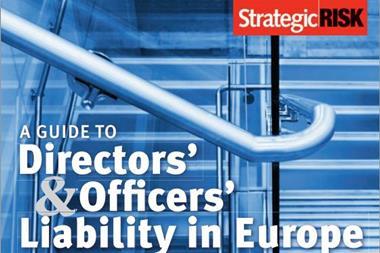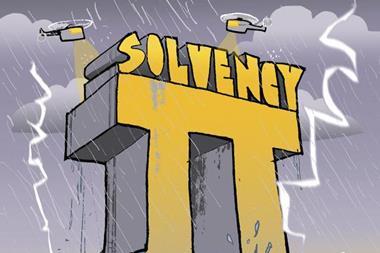Why did ALARM choose to call its conference 'Risk management is a force for innovation'? Surely risk management by now is an established discipline, and the word 'innovation' would have been more appropriate some years ago when risk management was considered a new approach. Would not a more appropriate word today be 'governance' or 'excellence' given risk management's role in the comprehensive performance assessment (CPA), the inspection regime that is used to comment on public sector organisations?
In fact, the title of the conference represents the dynamic nature of the subject and the constant change practitioners are faced with. Most importantly, it reflects the rise of the topic of risk management on the agenda of organisations. In recent years risk management has been integrated into the strategic management of organisations and used as a planning tool in setting objectives and measuring performance. It is the holy grail of embedded risk management that most practitioners strive to establish or contribute to, and this is the most challenging task of all.
The CPA in its early form measured organisations on whether their elected members (the governors) were involved and understood the risk management ethos of the organisation and whether a corporate risk register existed.
While these measures were laudable, it soon became obvious that segregating strategic risk management from operational endeavours did not create a sustainable management framework. Thus the principle of demonstrating risk management as adding value to front line services was born.
Although this is easier said than done, public sector organisations have risen to the challenge. ALARM's conference will demonstrate a plethora of good practice and innovation to establish how to add value.
The membership of ALARM is diverse and, as you would expect, varies in size and maturity of its risk management endeavours. While the conference and the range of topics meets members' different needs, with 50 workshops, three plenary speakers and international delegates sharing their experiences, the message remains constant. Using risk management adds value and provides business improvement.
What do we mean by 'force'?
Force is defined as: 'strength, power, impetus' (Concise Oxford Dictionary).
All of these words describe risk management, used as a strategic tool to inform activity, plans and policies.
There is certain strength in using a consistent approach to decision making, and a risk-based methodology can provide that approach. Risk management in the public sector is not about avoiding risk, despite being persistently portrayed as such in the press. Indeed, given the modernisation agenda for local government, the outsourcing or transfer of services such as housing provision, and the growth of PPIs (public private partnerships) and PFIs (private finance initiatives), the public sector is working more and more with speculative risk rather than pure risk.
Used properly, a risk-based methodology empowers an organisation, and it can be an extremely powerful tool to consider a change in culture, processes and policies.
It can easily provide an impetus to go back to the drawing board where corporate objectives, service plans and work programmes are concerned, and to rethink what could prevent the attainment of goals. This in turn can help to identify where organisations should target their energies and resources.
Why 'innovation'?
The dictionary says that to innovate means to 'bring in novelties; make changes'. A risk-based approach will certainly result in bringing in new controls and measures. And, more importantly, it will bring in a new mindset and approach to service provision. Dealing with those risks that factor high on the risk register frequently involves making changes and will on occasion require a novel approach to managing the risks identified.
Some of these innovative risk management ideas will be shared by risk practitioners and service providers alike at the ALARM conference, and this is one of the strengths of the association.
Successful risk managers are a force for innovation within their employing organisations. If you are one of them, or want to increase your knowledge base, then the place to be is the ALARM national conference this June.
- Peter Andrews is chairman of ALARM: the national forum for risk management in the public sector
Contact admin@alarm-uk.com for more details of the conference and an application pack.



















